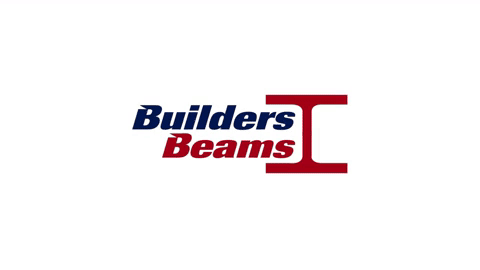In today’s highly competitive business landscape, organizations are constantly seeking new ways to increase efficiency, reduce costs, and deliver high-quality products to their customers. Implementing Lean Manufacturing principles is one of the most effective ways to achieve these goals.
At Steelo, we have successfully applied Lean Manufacturing principles to increase productivity. By analyzing production processes using Value Stream Mapping, implementing Just-in-Time (JIT) production, standardizing work procedures, and fostering a culture of continuous improvement, We have been able to reduce waste, improve efficiency, and enhance quality. As a result, Steelo has increased productivity, reduced lead times, and improved customer satisfaction.
In this article, we will explore the application of Lean Manufacturing in a structural steel fabrication business and its benefits.
What is Lean Manufacturing?
Lean Manufacturing is a systematic approach to identifying and eliminating waste in the manufacturing process. The goal of Lean Manufacturing is to increase efficiency and reduce costs by optimizing production processes, improving quality, and maximizing value for customers.
The principles of Lean Manufacturing are based on the Toyota Production System (TPS), which was developed in Japan in the 1940s. The TPS is a highly efficient and flexible manufacturing system that emphasizes continuous improvement, teamwork, and waste elimination.
Benefits of Lean Manufacturing in a Structural Steel Fabrication Business
Implementing Lean Manufacturing principles in a structural steel fabrication business can deliver several benefits, including:
- Increased Efficiency: Lean Manufacturing helps to identify and eliminate wasteful activities, such as overproduction, excess inventory, and unnecessary waiting time. This can lead to a significant increase in production efficiency and reduced lead times.
- Improved Quality: By implementing Lean Manufacturing practices, a structural steel fabrication business can improve the quality of its products by identifying and eliminating defects, improving processes, and enhancing employee skills and knowledge.
- Reduced Costs: Lean Manufacturing can help a structural steel fabrication business reduce costs by eliminating waste, reducing inventory, and minimizing defects. This can lead to increased profitability and a more competitive pricing strategy.
- Enhanced Customer Satisfaction: By implementing Lean Manufacturing practices, a structural steel fabrication business can deliver high-quality products with reduced lead times, which can enhance customer satisfaction and loyalty.
Key Lean Manufacturing Principles for a Structural Steel Fabrication Business
To effectively apply Lean Manufacturing principles in a structural steel fabrication business, the following key principles should be considered:
- Value Stream Mapping: Value Stream Mapping (VSM) is a tool used to analyze and improve the flow of materials and information in the manufacturing process. By creating a detailed map of the value stream, a structural steel fabrication business can identify waste areas and develop solutions to eliminate them.
- Continuous Improvement: Continuous Improvement is a core principle of Lean Manufacturing. It involves constantly seeking ways to improve processes, eliminate waste, and increase efficiency. By fostering a culture of continuous improvement, a structural steel fabrication business can continually improve its operations and deliver higher-quality products to customers.
- Just-in-Time (JIT) Production: JIT Production is a manufacturing strategy that involves producing only what is needed when it is needed, and in the amount needed. By implementing JIT Production, a structural steel fabrication business can minimize waste and reduce inventory costs.
- Standardization: Standardization involves creating standard work procedures and processes to improve efficiency and consistency. By standardizing processes, a structural steel fabrication business can reduce errors and improve quality.
Conclusion
Implementing Lean Manufacturing principles in a structural steel fabrication business can deliver significant benefits, including increased efficiency, improved quality, reduced costs, and enhanced customer satisfaction. By focusing on key principles such as value stream mapping, continuous improvement, JIT production, and standardization, a structural steel fabrication business can optimize its operations and achieve a competitive edge in the market.
Categories
Archives
- April 2024 (5)
- March 2024 (2)
- February 2024 (1)
- January 2024 (3)
- December 2023 (2)
- November 2023 (1)
- September 2023 (4)
- August 2023 (3)
- July 2023 (1)
- June 2023 (7)
- May 2023 (2)
- April 2023 (14)
- March 2023 (15)
- February 2023 (7)
- January 2023 (6)
- December 2022 (5)
- November 2022 (1)
- October 2022 (4)
- September 2022 (3)
- August 2022 (1)
- July 2022 (2)
- June 2022 (2)
- April 2022 (4)
- March 2022 (1)
- February 2022 (1)
- December 2021 (3)
- March 2021 (2)
- October 2020 (1)
- September 2020 (1)
- July 2020 (1)
- June 2020 (1)
- May 2020 (2)
- April 2020 (2)
- March 2020 (3)
- February 2020 (2)
- January 2020 (1)
- December 2019 (2)
- November 2019 (1)
- October 2019 (1)
- September 2019 (3)
- August 2019 (1)
- July 2019 (4)
- June 2019 (4)
- May 2019 (1)
- April 2019 (4)
- March 2019 (2)
- February 2019 (4)
- January 2019 (4)
- December 2018 (4)
- November 2018 (4)
- October 2018 (5)
- September 2018 (6)



